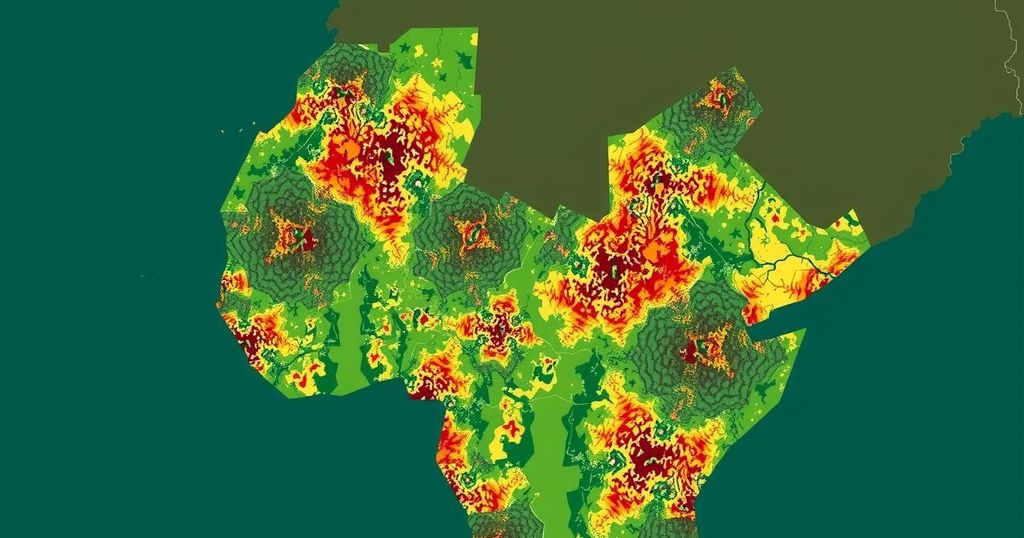The UNU WIDER Working Paper delves into the impact of climate shocks on Zambia’s formal sector, revealing that extreme weather conditions lead to significant declines in firm performance and tax revenue. The study underscores the necessity for cohesive policies that consider the effects of climate change on economic resilience and government finances in low-income countries.
In the working paper titled “Climate Shocks and Economic Resilience – Evidence from Zambia’s Formal Sector,” authors Kwabena Adu-Ababio, Evaristo Mwale, and Rodrigo Oliveira investigate the intertwining challenges faced by low-income countries, particularly focusing on Zambia. Utilizing firm-level data, this study examines the repercussions of climate shocks, such as heightened rainfall and extreme temperatures, on firm performance and government tax revenue. The findings indicate a marked decline in sales, input procurement, and tax revenues across key sectors, notably manufacturing, retail, accommodation, and construction. Furthermore, firms are compelled to reduce employment and wages as a direct consequence of decreased productivity.
The intersection of climate shocks and economic stability is a critical area of research, especially in low-income countries where resources for adaptation are often limited. Zambia serves as a representative case, experiencing varied climate impacts that significantly affect economic performance. Previous literature has often treated climate shocks and revenue mobilization in isolation, neglecting the broader implications of their interdependence. This paper fills that gap by presenting empirical evidence highlighting these interconnected challenges.
This paper emphasizes the urgent need for a comprehensive approach to policy development that addresses the dual impact of climate-related shocks on the formal sector and the government’s financial health. The authors argue that since taxation, particularly value-added tax (VAT), is vital for funding public services, understanding the full spectrum of these climate-induced challenges is essential for sustainable economic planning in developing nations.
“Extreme weather events significantly reduce firms’ sales, input purchases, and tax collection,” – UNU WIDER Working Paper 2024/71.
The evidence presented in this research necessitates a reevaluation of strategies for managing economic resilience in the face of climate variability. Policymakers must not only address immediate impacts but also consider long-term adaptations to mitigate the adverse effects of climate shocks on both the economy and government revenues. This approach is vital for fostering economic stability and resilience in low-income countries like Zambia, where the stakes are particularly high.
Title: The Impact of Climate Shocks on Economic Resilience in Zambia
Conclusion: In summary, the working paper underscores the detrimental effects of climate shocks on firm performance and government revenue in Zambia. By illustrating the interconnectedness of these elements, it calls for informed policy responses that integrate climate considerations into economic planning. Such measures are crucial for enhancing resilience in low-income contexts where both economic and environmental sustainability are at risk.
The paper focuses on low-income countries, which face the compounding challenges of climate shocks and inadequate tax revenue systems. Zambia is used as a case study to exemplify these issues, aiming to provide empirical evidence that connects climate variability with economic performance and fiscal health. Such studies are necessary to comprehend the multifaceted impacts climate change has on developing economies that largely depend on stable tax revenues for public services and growth.
The working paper highlights the adverse implications of climate shocks on both firm productivity and government tax revenue in Zambia. It highlights the need for integrated policy frameworks that address these interlinked challenges, ensuring that economic resilience strategies account for environmental impacts and support sustainable development in resource-constrained settings.
Original Source: reliefweb.int






